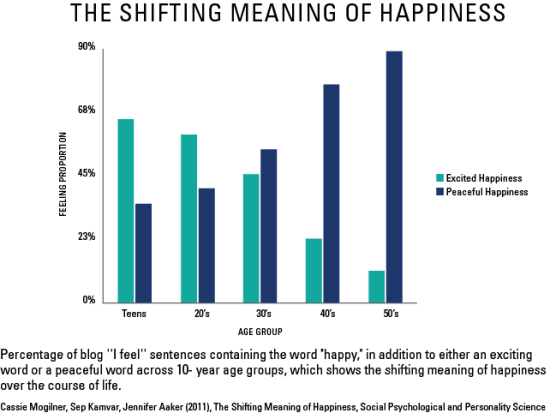Wharton professor Cassie Mogilner spoke to Knowledge@Wharton about her research into happiness and what it means for managing employees and marketing products.
Said Mogilner: “I have found that focusing on time leads to greater happiness than focusing on money. The way that I explored that was building on prior work, which tracked how people spend their days and also how people feel over the course of their days, finding that people are happiest when they are connecting with other people. They’re least happy when they are doing work or commuting. I wanted to see if thinking about time vs. money would influence people’s tendencies to behave in particularly happy or unhappy ways.”
Interestingly, Mogilner also found that happiness was different for the young and old. “I thought it was really interesting that when a 20 year-old says, ‘I feel happy,’ and when a 60 year-old says the very same thing … they’re likely feeling very different things. One will be feeling excited, and the other, a greater sense of calm. I also think it’s surprising — and actually quite nice — that ordinary experiences, those little moments that pop up every day, can produce as much as happiness as extraordinary moments. I think that’s really powerful in terms of where people find the happiness in their life.”
On the practical implications: “An interesting implication for consumers, or really anyone who’s interested in feeling happy, is to shift attention away from money, which is a resource that tends to absorb most of our attention and our thinking and planning on a daily basis, and shift attention to this fundamentally precious resource of time. Making that shift will remind you and motivate you to behave in ways that are happier, and to spend your time in more fulfilling ways.”

